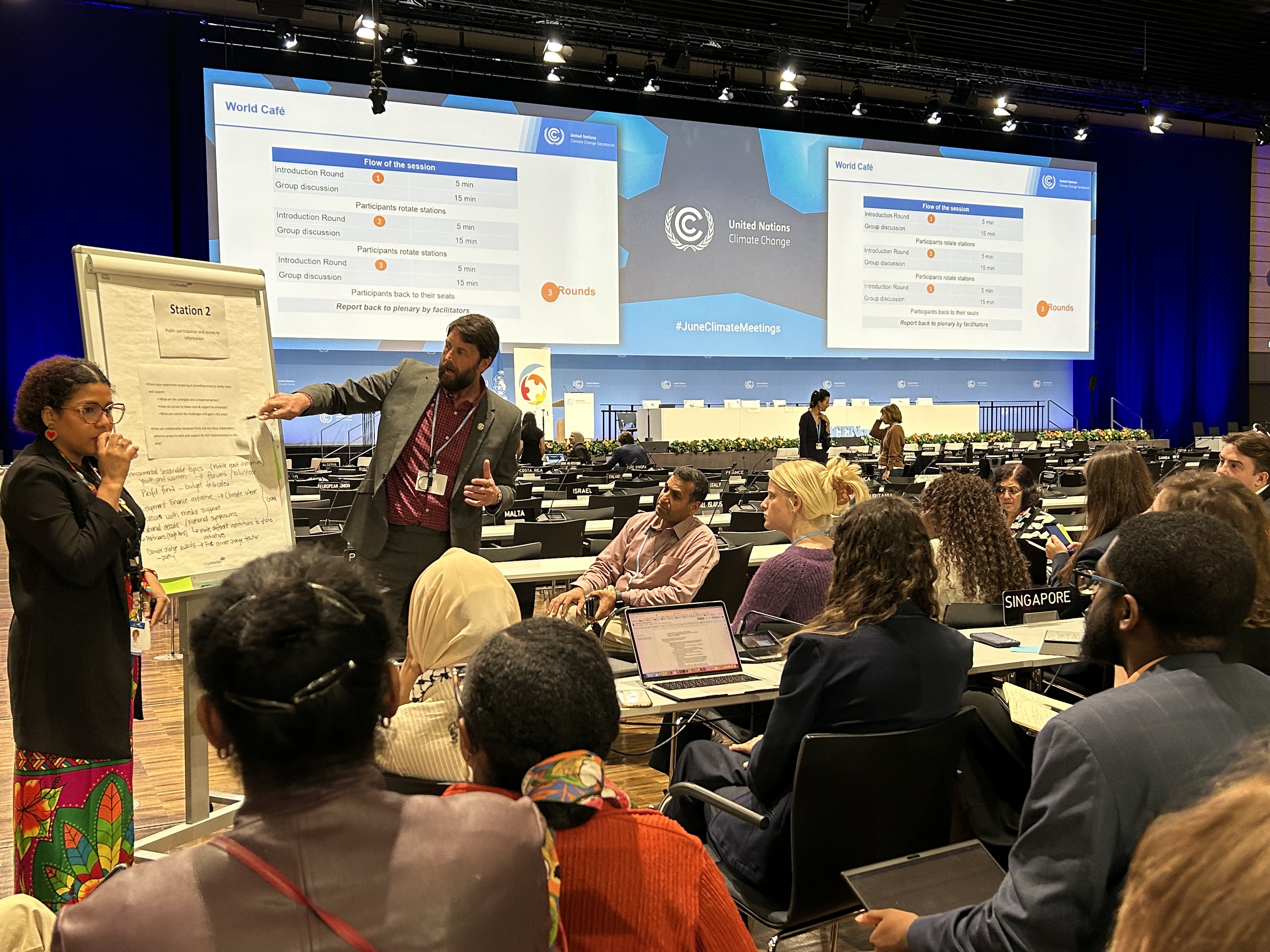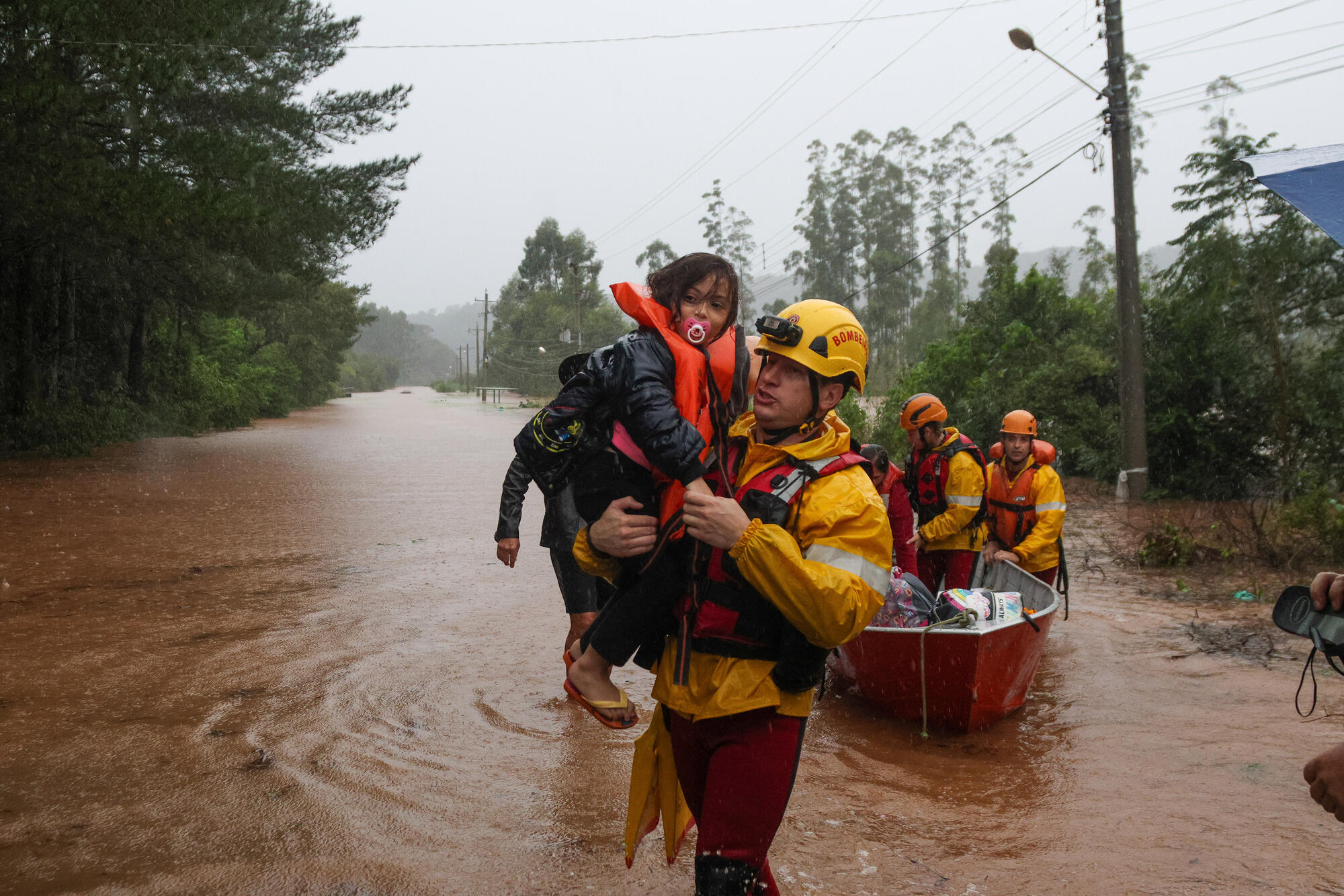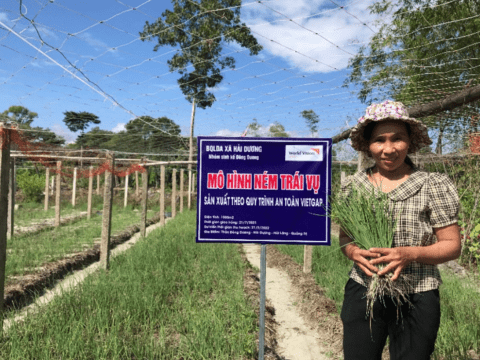
Jessie J is wrong about what we need for climate action
Maurice Sadlier says that climate negotiations from Bonn prove that climate action *is* about the price tag and deciding who should pay.
It's all about the money, money, money. The tune of the Jessie J rap song, or so I thought, Price Tag played inside my head at full blast as I exited the World Conference Centre in Bonn on Wednesday evening. I was at the mid-year climate conference, or Bonn Intersessional, to facilitate a discussion on promoting public participation in climate action through Action for Climate Empowerment, including public awareness, access to information, and participation.
While there is lots of attention paid to the annual Conference of Parties or COPs, this is less so for the negotiations that take place mid-year in the old German Capital of Bonn. Unlike COP where last year 85,000 participants attended, the intersessional meetings are a much smaller event where climate negotiators convene to progress to the discussions – drafting and negotiating texts, considering reports, and a place for the workshops and discussions mandated at the COPs to take place.
I have since listened to the song and Jessie J's words are in fact, "It's not about the money, money, money. We don't need your money, money, money," which could not be further from the truth regarding climate negotiations. Climate finance has always been a contentious and difficult discussion, but it struck me at this session that it has become even more fractious. Negotiations on texts that did not directly relate to finance were stuck when any hint of finance came into view. Lines like "takes note of the estimated budgetary implications "which are commonplace in multilateral negotiations were suddenly being questioned" - negotiators were pushing back and needed to do their due diligence before such benign lines could be agreed to.

Language that was perceived to enable a state to hold another responsible for providing the funding or conversely the perception that the language would enable a state to shirk responsibility was discussed and, in many cases, blocked. Negotiations on the Action for Climate Empowerment track (essentially education and participation) could not proceed at this intersessional because agreement could not be made on the inclusion of a line that included reference to financial and technical support.
As my friend Jessie J asks, "Why is everybody so obsessed?" Because Jessie, it is in fact all about the money, money, money - and justice. It is about survival, particularly for Least Developed Countries and Small Island Developing States. These states account for less than 4% and 1% of global greenhouse emissions respectively, yet they are home to some of the world's most climate-vulnerable populations and ecosystems.
One of the negotiations that attracted the most interest and attention of Parties and Observers at the Bonn Intersessional was discussions on the New Collective Quantified Goal or NCQG as it's known. It's not a phrase or acronym that falls off the tongue but one that is central to achieving the goals of the Paris Agreement. At COP21 in Paris governments agreed that a new climate finance goal should be agreed upon prior to 2025 – so at COP29 in Azerbaijan we should see agreement on a new climate finance target. This climate finance goal will take a floor of the previous climate finance commitment of USD 100 billion per year – a target we know did not deliver.
Agreement and more importantly delivery of climate finance is essential if the world is to limit the temperature increase to 1.5 °C above pre-industrial levels as per the Paris Agreement and to enable communities to adapt to the existential threat climate change is posing to them now and also to cover loss and damages.

There are many challenges to achieving agreement on this goal, not least the quantified component. The report of the Independent High-Level Expert Group on Climate Finance highlights that $1 trillion per year in external finance will be needed by 2030 for emerging markets and developing countries (EMDCs) other than China. Back in 2021 the first Needs Determination Report of the Standing Committee on Finance indicated that USD 6 trillion was needed to implement developing countries' climate action plans by 2030, and this does not fully cost for adaptation. This was based on assessments that presumed the world would have taken adequate action on the climate crises – we know that not to be the case. No wonder then in the negotiation rooms you hear phrases like, "politely refuse" and "apologies in advance" before negotiators tear strips off each other. However difficult it may be, we need to see agreement on this new climate finance goal. And more importantly, we need higher income nations, like Ireland, to contribute their fair share to this commitment.
Moreover, we need to see funds flow to local communities. While chatting to a good friend Ruth Spencer from the small island state of Antigua and Barbuda who was telling me how things are getting so much worse for her community, she wondered how these funds are actually going to work for communities like hers. What is important for Ruth and many other community leaders is that the world takes action on climate change now and that resources flow to their communities.
So, Jessie J may be disappointed to hear that her song can't become my climate anthem! Because unfortunately when it comes to climate finance it is about the money, money, money; we do need your money, money, money and we definitely can't forget about the price tag.
Learn more about World Vision's work to address the impact of the climate crisis on children and their families here
Maurice Sadlier is Programmes and Policy Director at World Vision Ireland. Follow him at @MauriceSadlier



